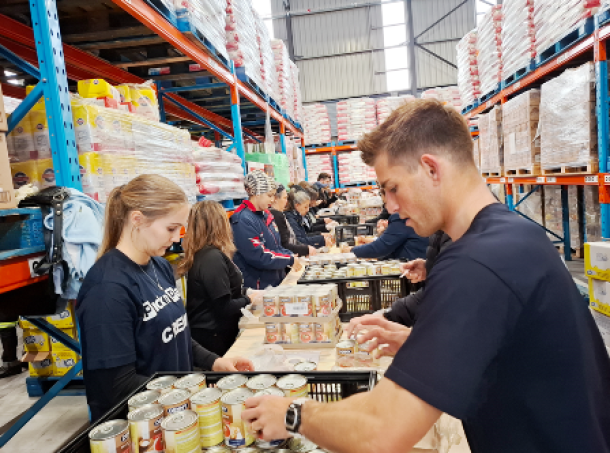Evidence-based social impact is a largely ignored but critical pathway to redress structural causes of poverty
For every R1 donated to FoodForward SA (FFSA), impact that is worth R98.07 is generated. This is one of the findings of an independent Return on Social Investment (SROI) report compiled by Impact Amplifier, a specialist in the business social impact measurement space.
“The report is a first of its kind for Africa,” says Tanner Methvin, one of the partners at Impact Amplifier. Methvin shared findings from the report at FoodForward SA’s annual stakeholder meeting, which was facilitated online through Cape Town Conference Centre, on Thursday, 18 March 2021.
The SROI report evaluates the impact of FFSA’s foodbanking model and sheds light on how foodbanking brings about social change. During the assessment period, 1 March 2019 to 29 February 2020, FoodForward SA distributed 5,082,308 kgs of food to its network of just over 1,000 registered beneficiary organisations (BOs). The total economic value FFSA created was R588 million and more than R1,6 billion worth of SROI was generated from FFSA’s activities in the 2019/2020 financial year.
“The 91-page report reviews the impact of FFSA’s activities and includes statistics that dispel the myth that feeding people does not address the structural causes of poverty,” says FoodForward SA MD, Andy Du Plessis. The study, which involved 80 of FoodForward SA’s beneficiary organisations across three provinces, reports that “47% of respondents noted that, if FFSA were to stop its support, they would have to adjust their feeding programme significantly, while 41% of the BOs said that they would have to stop theirs. According to the BOs, 83% of their beneficiaries are reliant on social grants or support from family, which makes the average household income of individuals receiving services from the BOs registered with FFSA less than R1,000 per family.”
“South Africa is the most unequal society in the world. Shamefully, we wore this badge of dishonour well before the Covid-19 pandemic,” says Du Plessis. “The stark inequality in our social order became significantly more visible when our nation was suddenly plunged into a state of disaster, a year ago. Under lockdown level 5, millions of people who depended on a daily and weekly income for survival joined millions of others who were destitute and vulnerable well before Covid-19.”
“At the centre of our nation’s deeply-rooted structural inequality are two core problems – poor education and poor nutrition. Since 50% of our youth do not complete grade 12, skills shortages and unemployment are escalating. Because of low education levels, most people earn meagre incomes and will not be able to afford a sustainable livelihood. Unexpected disasters like pandemics leave poor people most vulnerable.” The World Health Organisation (WHO) regards poor nutrition as the most significant threat to the world’s health. They state that, overall, under-nutrition is the single largest killer of children under 5 years (45%).
“We need our government to create an enabling environment for inclusive growth, but its track record is dismal. Poor performance and deep-rooted corruption of state-owned entities like Eskom, SAA, PRASA and SABC do not inspire confidence,” says Du Plessis. While business is a key driver of economic growth business confidence is declining. Released last week, the RMB/BER Business Confidence Index (BCI) for the first quarter of 2021, shows that seven out of ten senior executives expressed dissatisfaction with prevailing business conditions. “This is up from six in the previous quarter and is a clear indication that businesses are following a cautious approach and will likely not hire more staff at the required pace, at least for the foreseeable future. With unemployment at 42%, when considering its broad definition, the inequality divide will only widen, given our current crisis. This will lead to further generational poverty, for most of our people,” says Du Plessis.
“There is another pathway to better education and nutrition outcomes in under-served communities – the social impact of the collective efforts within the non-profit sector,” says Du Plessis. He feels that this has largely been overlooked as a vital driver for change. Traditionally, the non-profit sector is viewed as a charitable segment where benevolence is granted to people and organisations that seem to do some kind of social good. “Unfortunately, most charities do not keep reliable records, do not manage their finances well, do not have good governance in place, cannot demonstrate their impact and are not transforming into viable contributors to social change. To their detriment, they have been criticized as being the recipients of funds for which they have little measurable results to show for their efforts, says Du Plessis.
By tracking relevant social, environmental and economic outcomes related to the surplus food they recover and distribute via their Second Harvest, Warehouse Foodbanking, Mobile Rural Depot and FoodShare programmes, FoodForward SA is able to measure how much change or value their efforts create. “A growing number of corporates seek to direct their Corporate Social Investment (CSI) or Socio-Economic Development (SED) budgets to outcomes that generate positive, measurable social and environmental impact,” says Du Plessis.
The report also found that “72% of BOs that were part of this assessment do not charge a fee for the services they provide The majority (75%) of the BOs reported that the food items received from FFSA are not enough to run their food programme and almost all (97%) would like to receive more food from FFSA. The food donations distributed by FFSA to the BOs contributes 34% of the food for meals served; while more than 65% of the total food supply is sourced by the BOs separately as direct purchases, harvested from own food gardens and contributions from other organisations.
“Despite its challenges, the NPO sector provides vital services that stave off hunger, support educational and personal development and give vulnerable people a fighting chance. While not sufficiently documented, there are thousands of success stories of vulnerable people who were able to thrive because of receiving the care and support they needed,” says Du Plessis.
The SROI report was compiled by conducting case studies, site visits, interviews and surveys through a representative sample of its BOs. It assesses whether the food provided by FFSA made a difference and demonstrates how quality surplus food is used as a catalyst for social change in vulnerable communities. Of the participating BOs, 57% provide services that fall under youth and community development which includes orphans and vulnerable children, 35% provide educational services and 8% provide health care services.
News Category
- International retailers
- On the move
- Awards and achievements
- Legislation
- Wine and liquor
- Africa
- Going green
- Supplier news
- Research tools
- Retailer trading results
- Supply chain
- Innovation and technology
- Economic factors
- Crime and security
- Store Openings
- Marketing and Promotions
- Social Responsibility
- Brand Press Office
Related Articles
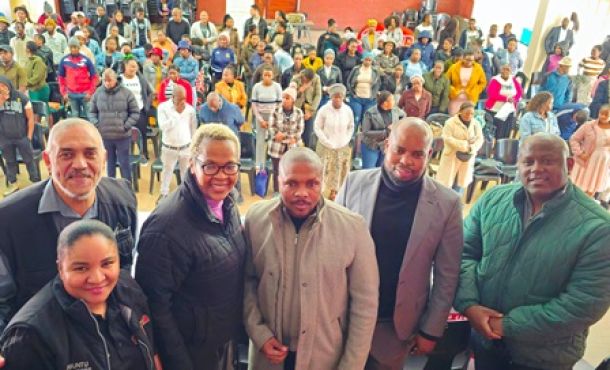
Successful farmer’s training project launches i...
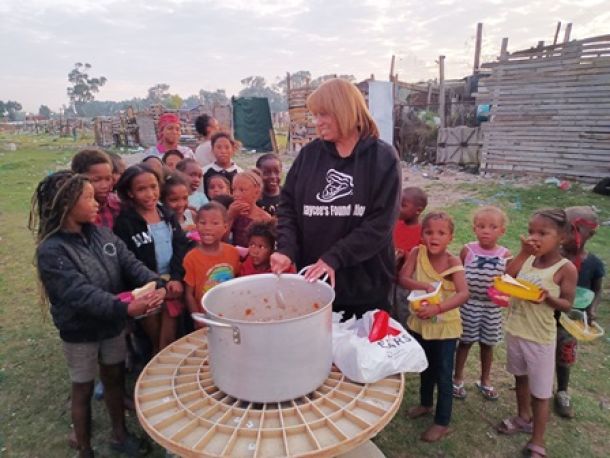
Engen’s Charmaine Le Breton secures support for...
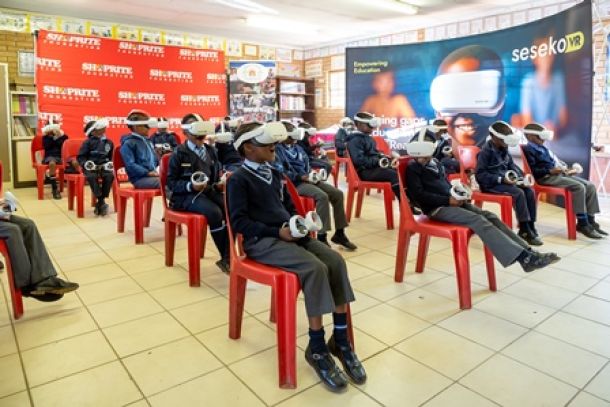
Virtual reality and access to clean water for S...
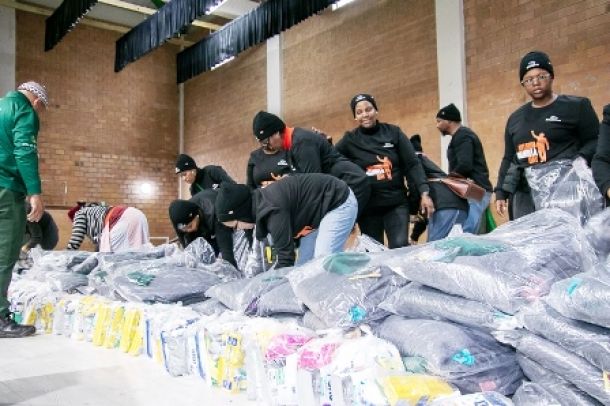
Gift of the Givers and Engen join hands for Mad...
